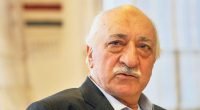Turkey’s Coup Provides Reichstag Fire Moment for Authoritarian Erdogan

Date posted: July 20, 2016
Doug Bandow
Recep Tayyip Erdogan has ruled Turkey for more than a decade. He should be enjoying his time of triumph.
Yet his country almost crashed and burned last week. Elements of the army and air force attempted a coup d’etat, leading to street battles and air attacks.
Erdogan promised revenge against those involved, who will “pay a heavy price for their treason.” No doubt they will, since the thin-skinned Erdogan long has been making even mild critics suffer for their alleged sins. To tame the military, his government previously tried hundreds of military officers and others in mass trials involving improbably fantastic conspiracies.
Turkey is one of the least friendly nations for independent journalists. Around 2000 people, including students and even a beauty queen, have been prosecuted for criticizing Erdogan. His government periodically targets Internet freedom.
The briefly constituted junta announced that it had seized power “to reinstall the constitutional order, democracy, human rights and freedoms, to ensure that the rule of law once again reigns in the country, for last and order to be reinstated.” Worthy objectives for an increasingly desperate Turkey today.
Unfortunately, a coup may be the least likely vehicle for moving Turkey into a genuine liberal, democratic future. Those who look back nostalgically on earlier military seizures of power ignore the ugly reality. For instance, the 1960 coup led to the execution of the popularly elected prime minister and other officials and imprisonment of thousands.
Moreover, the public today is well-organized and committed to democracy. Having provided Erdogan and his Justice and Development Party (AKP) with a half dozen election victories since 2002, the Turkish people were never likely to quietly accept his ouster and the imposition of a hostile military regime.
Unfortunately, as I wrote for Forbes, “the botched coup is likely to act like the infamous Reichstag fire under the Nazis and accelerate the Erdogan government’s race to the dictatorial bottom. He is likely to become more vindictive and paranoid—because he does have enemies everywhere. Never mind that he bears responsibility for the authoritarian policies and corrupt practices which have energized his most fervent opponents.”
Politics almost certainly will grow more polarized. Anger against those who struck at his rule may intensify Erdogan’s extra-legal campaigns against other political parties. His supporters could practice private revenge and vigilante justice.
In fact, Erdogan might reap political advantage from the coup. Other parties might feel greater pressure to work with him to deliver the super-majority which he needs to change the Constitution to expand his presidential powers. He also could call a snap election in hopes of winning that majority on his own.
Turkey’s security is likely to suffer in the coup’s aftermath. The Erdogan government originally played footsie with the Islamic State, but several terrorist attacks in Turkey forced a crackdown. Moreover, he reignited the long fight against the Kurdistan Workers’ Party (PKK) and targeted Syrian Kurds to enlist nationalism as his electoral ally. Now, however, the military is badly damaged and faces internal disarray for an extended period of time.
Ankara is a difficult ally for America, but the Obama administration took the right approach, immediately backing Turkey’s elected government. Democracy is yielding ever more illiberal outcomes, with Erdogan seemingly determined to accrue Putinesque powers.
Yet military rule could succeed only by killing and imprisoning on a large scale. And a successful junta was likely to produce a society with even less liberty and respect for human rights.
Erdogan is an increasingly undemocratic president elected democratically. He should use the failed coup to address the substantial portion of the population which has come to loathe and even fear him. If he doesn’t, he should be removed and his government should be ousted—but by Turkey’s voters, not its soldiers.
Someday, Turkey may be truly free. Hopefully, a military coup will not be necessary to make it so.
Source: CATO Institute , July 18, 2016
Tags: Erdogan’s Reichstag Fire | Military coups in Turkey | Turkey |
























